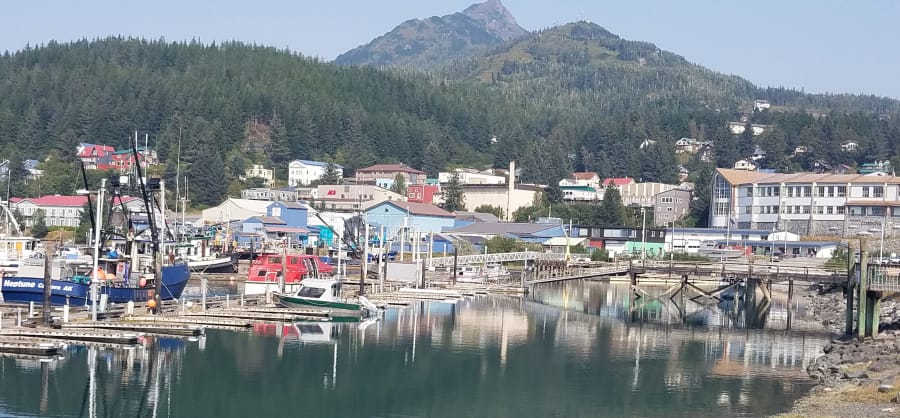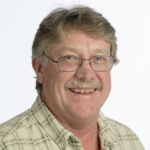CORDOVA, Alaska — The anchor dropped to the bottom, and the bow of the “Liberty” swung into the wind. A 39-foot stern-picker that is part of the Cordova, Alaska commercial fishing fleet, the boat rolled crazily back and forth like an old-time cradle being rocked too quickly.
We were going to spend the night anchored here, in the lee of an island inside the Prince William Sound.
“Do you ever get rocked out of your bunks when it is this rough?” I asked my host and the captain, David Saiget of Cordova.
“Don’t worry,” was his calm reply. “The tide will change soon and it will lay down.”
It did. We spent a pleasant evening taking in the views of the craggy, snow-topped mountains to the north, jagged peaks overlooking glaciers that throw their silty loads into countless creeks crisscrossing the Copper River Delta.
The scenery is a reminder that you are in one of the last unspoiled places on earth. It is truly unlike anywhere in the lower 48.
In the morning we would drop our gill net in the Gulf of Alaska to intercept coho salmon bound for the Copper River. We were fishing on wild stocks of salmon, a sustainable product of the state’s seemingly endless salmon habitat, and rich, cold seas.
It was not good fishing, for us or most of the fleet. We caught few salmon that day. The surface temperature registered 60 degrees; way too warm for northern seas.
All is not well in south central Alaska. This summer saw record high temperatures and huge forest fires. Mid-August is usually the start of the rainy season. Not this year.
The rivers and streams were extremely low, and the days were hot, sunny and dry. Salmon were circling at the mouths of creeks, waiting for a freshet. Thousands of pink salmon were dying from a lack of water in the creeks.
The earth’s poles are warming faster than the rest of the planet, putting Alaska squarely in the crosshairs of a changing climate.
Local sport fishermen were calling the fishing poor as a result, but I had come up here to fish. I had to try.
Ibeck Creek, just seven miles east of town, was my first stop. Slow or not, it only took me a dozen casts with a Blue Fox spinner to catch my first coho of the trip.
Others soon followed. It may not have been the action I was expecting, but I hooked nearly a dozen coho in a few hours of fishing.
Alaskan coho are aggressive, and they will charge a spinner, often smashing it at your feet. The creek’s water was icy and oxygen-rich, and the bright salmon battled hard, stripping off line time and again.
In addition to the coho there were plenty of pink salmon willing to bite. Also, Dolly Varden trout would strike anything that resembled a salmon egg.
There are lots of other options in the Cordova area. The Eyak River offers sockeye and coho, and further east the Alagalanik Slough has coho. There are also countless small creeks that have fish, and there is a local bank fishery in the salt water at Flemming Spit, just north of town.
This is an excellent part of Alaska to fish on your own, and anyone that can cast a line can get in on it. However, there are a number of local outfitters that will put you on the fish and help you find success.
The village of Cordova is perched among the foothills where the Prince William Sound abuts steep mountains. It is a fishing town, and it looks the part. Hundreds of fishing boats lay at rest in the harbor, and modest homes cling to the hillsides. Steep, broken-topped mountains loom behind.
The only way to get there is by boat or plane. Access by road is limited from the town, and mostly consists of the Copper River Highway, a partially paved road that crosses the delta.
It does afford access to creeks and sloughs packed with salmon and trout, and the further away from Cordova you are willing to drive, the less fishermen you will encounter.
Saiget worked in this area in the 80’s and 90’s as both a fish biologist, and a commercial fisherman. He returned in 2013 to make his home here. In addition to fishing for salmon, he owns Bio-Fish, an environmental consulting business.
Saiget is a biologist first, and that drove him to offer his customers salmon from sustainable wild runs from the Copper River area, instead of the hatchery-enhanced runs of the Prince William Sound.
“I am really trying to target sustainable wild runs that are unique in timing, in flavor, and in color,” said Saiget. “The hatchery runs in Prince William Sound, maybe they aren’t as unique.”
Saiget handles his fish with extra care, often using the Japanese method of Ikejime, a process that improves the flavor and freshness of the fish.
“Generally, the salmon you buy in the stores die of asphyxiation,” he said. “It’s kind of a long process, and you get all these chemicals dumping into the blood stream. Many people believe it affects the quality and the shelf life of the fish.”
Ikejime quickly dispatches the fish and dissipates the electrical activity of the nervous system. A pressurized water stream is then used to clear the arteries of blood. Fish processed this way have a surprisingly long shelf life, and it improves the flavor.
Saiget then ships his fish directly to customers, hence the business’ name: Copper River Salmon Direct. He offers Copper River sockeye, king salmon, and coho salmon, all caught on the “Liberty.”




